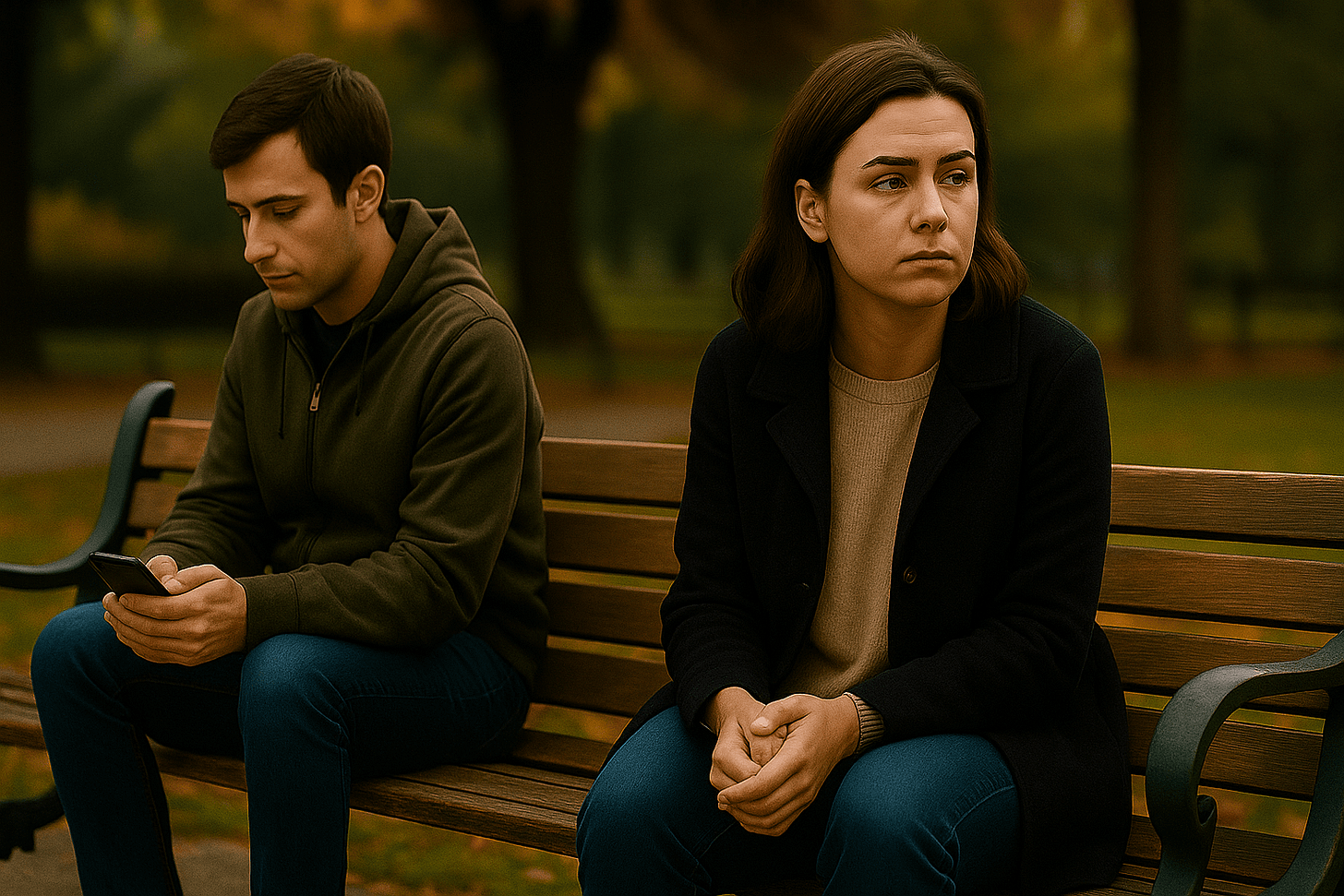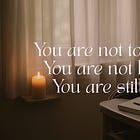What They Didn't Say
The ache of being unseen in your grief, and how to reclaim your story.
Grief is already lonely.
But there’s a special kind of ache that shows up when you’re not alone—and still feel completely unseen.
Maybe someone sent a card.
Maybe they brought a casserole or texted once.
Maybe they even said all the “right” things.
But it didn’t land.
Not really. Not where it needed to.
Or maybe they pulled away altogether.
Didn’t know what to say. Said something that hurt.
Changed the subject when you finally tried to talk about it.
That silence? That weird distance? That bruise from something so small it shouldn’t have mattered, but did?
That’s grief, too.
It’s the grief inside the grief. The loss wrapped inside another kind of loss.
And it deserves to be felt.
You’re Not Being Too Sensitive
Let’s get that out of the way now.
You’re not too much. You’re not making things up. You’re not ungrateful for noticing what felt off.
It’s okay if:
You felt abandoned by someone you counted on.
You’re still carrying the hurt of what wasn’t said.
You feel resentful that the support stopped two weeks in.
You’re sick of people calling you “strong” when what you really want is to be allowed to fall apart.
You still need to say their name, but no one else brings it up anymore.
You are not asking for too much.
You are asking for what’s real.
And real care doesn’t look like performance. It looks like presence.
If this post speaks to something you’ve carried quietly, you might feel at home here.
I write weekly about grief, healing, and the strange tenderness of being human.
You can subscribe for free below, or join as a paid supporter if you want to go deeper with me.
Why Support Often Misses the Mark
Most people don’t know how to hold space for grief.
They know how to fix, distract, and cheerlead.
But witness? That’s something else entirely.
So they say things like:
“At least they’re not in pain anymore.”
“Everything happens for a reason.”
“You’re so strong.”
“You’ll feel better soon.”
And maybe they meant well. But meaning well doesn’t always feel good.
Because what you really needed was something quieter. Truer.
Like:
“You don’t have to hold it together with me.”
“Tell me about them. I’m listening.”
You didn’t need solutions. You needed space.
You didn’t need silver linings. You needed someone to sit with you in the storm.
Grief Rearranges Your People
Loss doesn’t just change you, it changes your relationships, too.
You might’ve pulled away. Or shut down. Or suddenly realized some people were only ever there for the easy version of you.
You may have hoped someone would show up, and they didn’t.
You may have been surprised by who did.
Grief reshuffles the deck.
You are allowed to feel grief for the relationships that shifted.
You are allowed to set new boundaries.
You are allowed to outgrow people who couldn’t hold your hurt.
You are allowed to love someone and still name the ways they let you down.
Try This: Reclaim the Story
This might sting a little, but it’s powerful.
On a piece of paper, write the name of someone who disappointed you in your grief.
Then ask yourself:
What did I need from them?
What actually happened?
What do I want to carry forward, and what do I want to let go of?
This isn’t about staying angry forever.
It’s about telling the truth.
It’s about giving your experience shape, instead of stuffing it down.
You don’t owe anyone your silence.
Especially not now.
Grief like this often goes unspoken.
If you know someone who’s carried the weight of being unseen, feel free to send this their way.
Sometimes, just knowing someone else gets it can make all the difference.
You Deserve the Right Kind of Care
Real support exists.
It might not come from where you expected, but it’s out there.
It looks like:
A text that says “Thinking of you today” with no pressure to reply.
A friend who lets you tell the same story again and again without flinching.
Someone who doesn’t try to cheer you up, but sits in the fog with you.
A voice on the other end of the phone that simply says, “I’m here.”
If you haven’t found that yet, it’s not your fault.
And no, you’re not asking for too much.
You’re asking for care that matches your grief.
Which is another way of asking for honesty. And humanity.
What You Can Do Now
If your heart still aches from the people who didn’t show up, know this:
You can name that pain.
You can feel it fully.
You can forgive without forgetting.
You can grieve the disappointment and still move toward healing.
You can give yourself the presence others couldn’t offer.
Try saying, out loud, just for you:
“I see how hard this has been. You’re allowed to fall apart. You’re allowed to feel every bit of this.”
Then, when you're ready, go find the places where your grief doesn’t have to be explained or hidden.
You deserve that kind of space. Truly.
Love today,
Heather 🌸
Journal Prompt:
Whose absence hurt the most during your grief?
What were you hoping they’d say or do?
What kind of care do you want going forward?
If this post stirred something in you, you're not alone.
Grief doesn’t follow a straight line, and you don’t have to navigate it without support.
Still Here: A Digital Grief Companion is a six-week guided experience for anyone carrying grief of any kind.
Part guidebook, part ritual, part witness—it's not here to fix you. It’s here to walk beside you.
Take your time. Let it meet you where you are.





